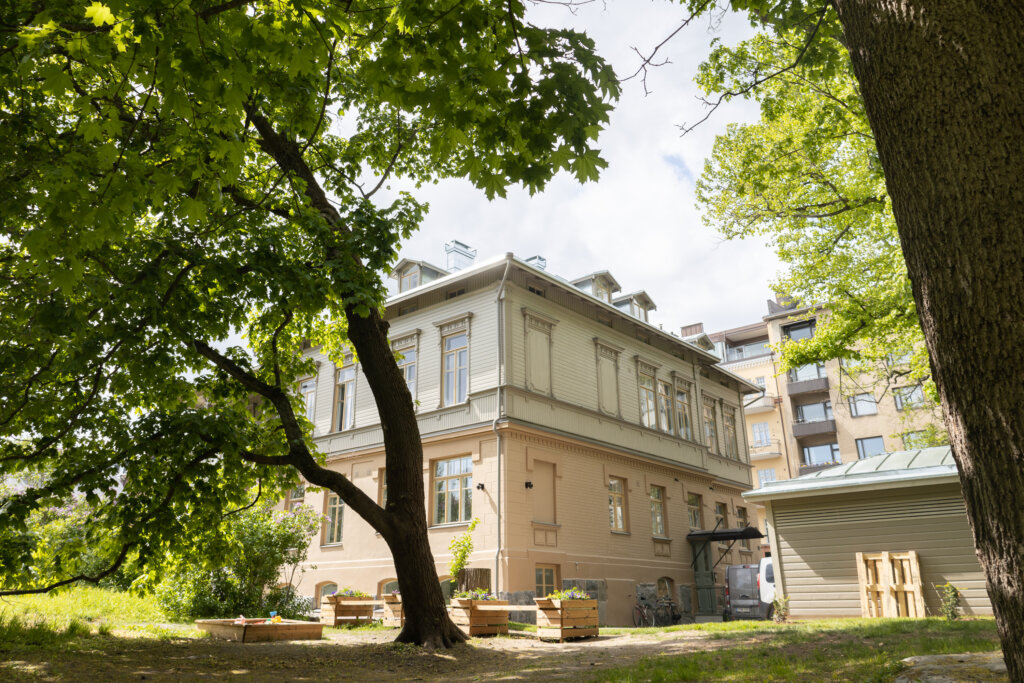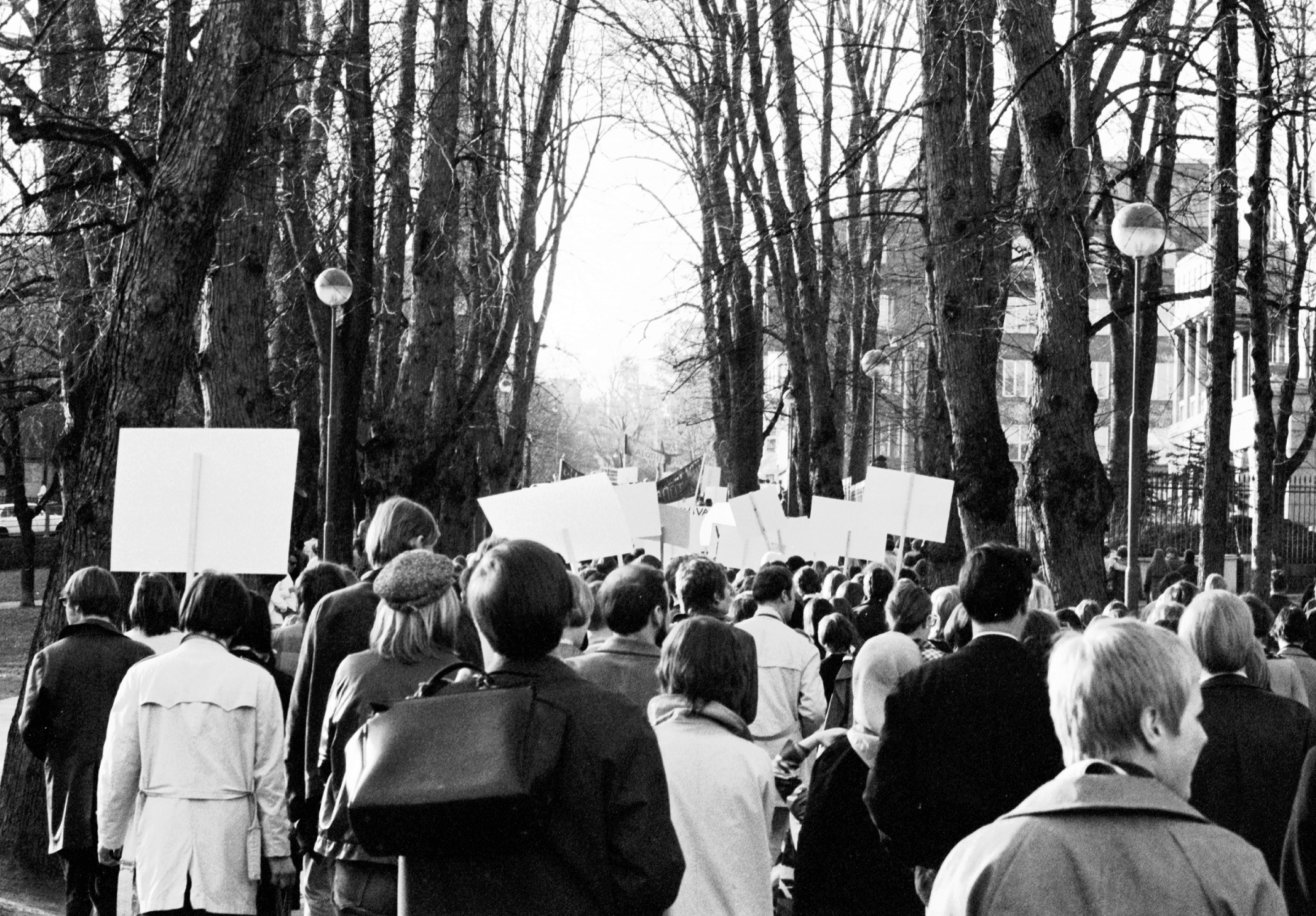Puistokatu 4 on hope – “Hope is recognizing the important things”
Puistokatu 4 is called a Space for Science and Hope. Science, because we need research from different fields in order to build an ecologically sustainable future. Hope, which we must maintain in order to remain functional in the building of a future worth striving for. But what do the members of Puistokatu 4 think about hope?

On a normal weekday, when passing by Puistokatu 4 you might make a first observation: the house seems a bit sleepy and quiet. The same observation can be made from a distance from an anthill.
Behind the calm exterior something is cooking. A Space of Science and Hope buzzes from the inside as its community of nearly 60 members work on research texts, artworks, mediation processes, environmental financing solutions, and much more. A typical week in the bulding also includes events by companies, civil society and public administration. An ecologically sustainable future has been considered in the premises of Puistokatu 4 by both ministries and big corporations.
During our first year of operation, we have been pleased to notice that hope and action live in symbiosis in Puistokatu. Working under the same roof and vision brings hope in itself.
“This community and discussions bring hope. You get the feeling that you are not alone with your thoughts.”
The previous quote is from the community workshop, where we gathered with our researcher and activist members to discuss the much-maligned concept of hope.
Journalist and non-fiction writer Veikka Lahtinen pondered in his Kansan Uutinen column “is hope poison in climate policy?”. Professor Kristiina Brunila, on the other hand, evaluates in her blog that “calling for hope is an excellent way to do nothing, to externalize the problem to something other than your own responsibility, or a way to use it for your own purposes”.
Criticism of the concept of hope and its use is justified. We suggest that when examining the hope discourse, active attention should be paid to who is speaking about it and in what context.
“I have tried to distinguish hope as a discourse related to the use of power and as a personal (or community) feeling that can lead to action. For example, if a fossil fuel company talks about hope, it tries to present its operations as unchanging and somehow ‘natural’, and the hope seems some kind of abstract salvation. In this way, the company tries to shift the gaze away from their own doing towards an undefined hope. On the other hand, if the climate movement talks about hope, I often take it as a synonym for the fact that change is possible. For example, in the case of the economic system, it can sometimes seem that continuous economic growth is almost like some law of physics that cannot be changed. The idea of hope can be useful, because it can be used to emphasize that nothing really prevents us from imagining a better system and working towards it.”
An ecologically sustainable future worth striving for requires imagination and dreaming. If we only focus on preventing dystopias, it can be difficult for us to imagine the diversity of possible futures; to build meaningful images for it.
New visions and ways of thinking and sprout from idleness. We believe that in all fields, there is an acute need for a more frequent opportunity to stop and tune in to things that stimulate creativity.
In addition to creativity, incompleteness and uncertainty should be honored.
“There is no other way to reach unthought ways than to grope towards them. Uncertainty is essential to dreaming and hoping.”
Our conversation also reminded us that the feeling of hope is and has always been a central part of being human. Without hope, we would have already perished as a human race.
“We need hope for noticing the wrongdoings. At one time, it was hoped that there would be enough food and shelter. When a sufficient standard of living was achieved, it was hoped that everyone would be guaranteed basic human dignity. This led to the organization of equality movements. Now we hope we’d have an [ecologically] sustainable future. This is the result of thousands of years of development. It is a clear paradigm shift that we no longer talk only about hope related to people.”
A person is able to turn their gaze from themselves to different people, but also to other species – to understand that the good life of others also supports their own good life. Hope is recognition of things that are important to a person.
The idea has been summed up by the late Czech writer and politician Václav Havel:
“Hope is not the certainty that something will succeed, but the conviction that things matter regardless of what happens.”
We hope that this text succeeded in raising hope in you. A warm welcome to Puistokatu to continue the conversation!




